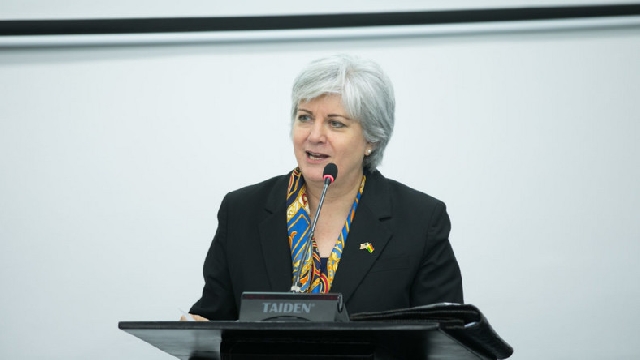The United States (US) ambassador to Ghana, Stephanie S. Sullivan, has called for an end to the stigmatisation of persons living with HIV.
The ambassador made the call during a virtual address on the commemoration of World AIDS Day, which fell on Tuesday, 1 December 2020.
Her admonition follows continuous global efforts targeted at ensuring an HIV-free world by the year 2030.
The ambassador noted that people avoid getting tested for HIV due to the stigmatisation of persons living with the virus.
She said: “Stigma and discrimination towards people living with HIV often cause people to avoid getting tested, disclosing their status, seeking treatment, and staying on the life-saving medication that will also stop the spread of the disease to others.”
She further noted that everyone must get involved to work toward ensuring an end to HIV our societies.
“When a member of our community is stigmatised or unable to access services, it threatens their livelihood, the health of their families, and the broader community…no one is safe until everyone is safe, and that we must all work together to bring an end to HIV/AIDS.”
Ambassador Sullivan affirmed the government of Ghana’s efforts to put an end to discrimination and stigamatistion of persons living with HIV and stressed the role of the US in supporting the government.
“We must continue to end stigma and discrimination against people living with HIV. They are our family members, neighbors, and friends. Together with our partners, we support the government of Ghana’s HIV/AIDS response to ensure that Ghanaians overcome stigma and discrimination and have access to quality HIV testing and treatment services.
“We’ve worked closely with the Government of Ghana, civil society, and other partners for decades to combat the spread of HIV. Who can forget the 1999 social marketing campaign: ‘If It’s Not On, It’s Not In?’”
She also pledged her country’s support to the government of Ghana in its fight against HIV.
“When people living with HIV feel secure and have uninterrupted access to HIV treatment, we’re helping to keep them as well as ourselves and the community safe. We look forward to continuing our work together to ensure that Ghana achieves its vision of ending AIDS by 2030”, Ambassador Sullivan added.
There are about 342,307, persons living with HIV in Ghana according to the Ghana AIDS Commission 2019 National HIV Estimates and Projections.
Out of the total, 316,352 are adults while 25,955 are children.

